Download Area
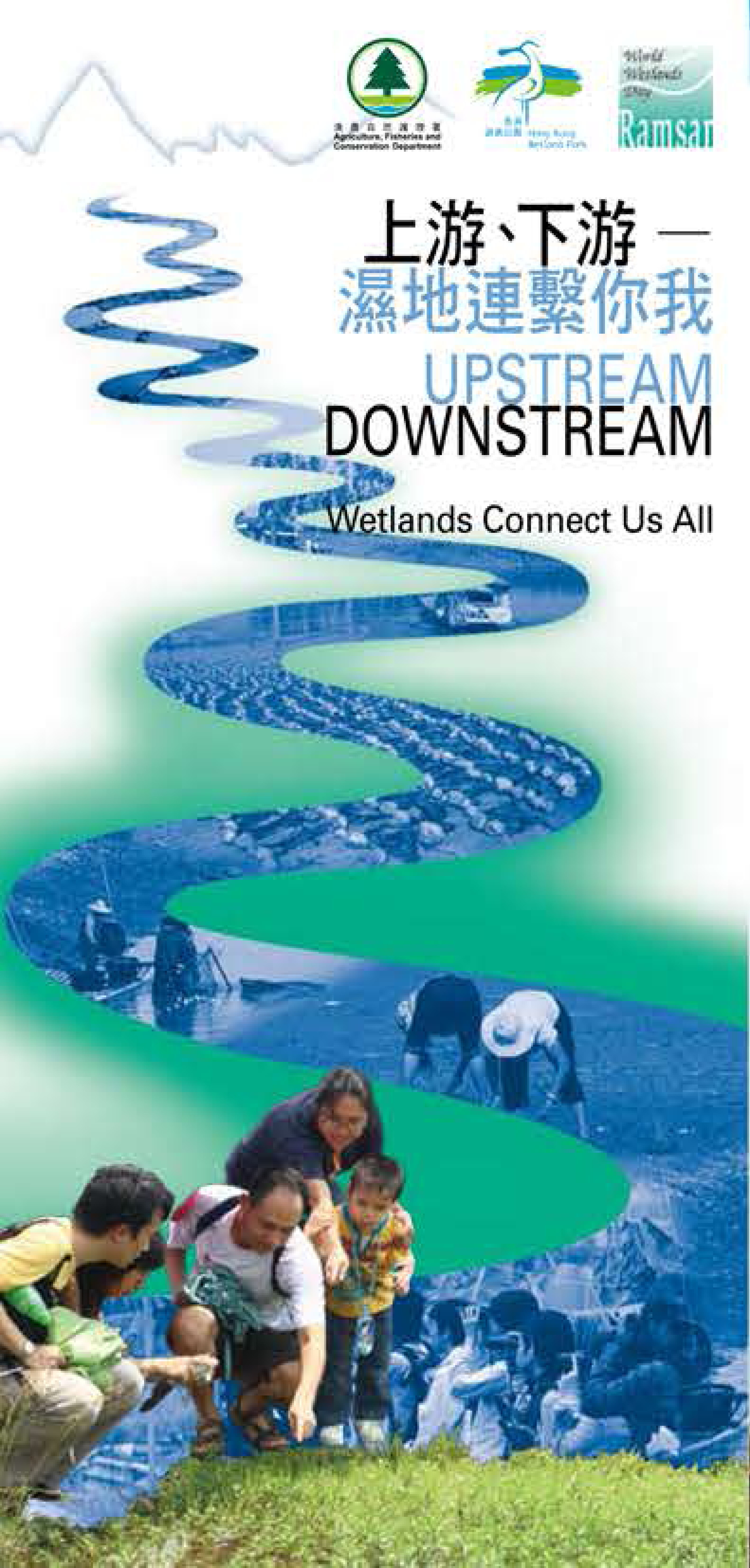
Rivers basins provide essential and treasured freshwater resource for us; human civilisation was originated along river basins. The theme of the World Wetlands Day 2009 is 'Upstream – Downstream : Wetlands Connect Us All', its aims to promote the understanding and wise use of river basins.
To echo theme of the World Wetlands Day 2009, Hong Kong Wetland Park has produced a pamphlet to introduce the various functions and the importance of river basins.
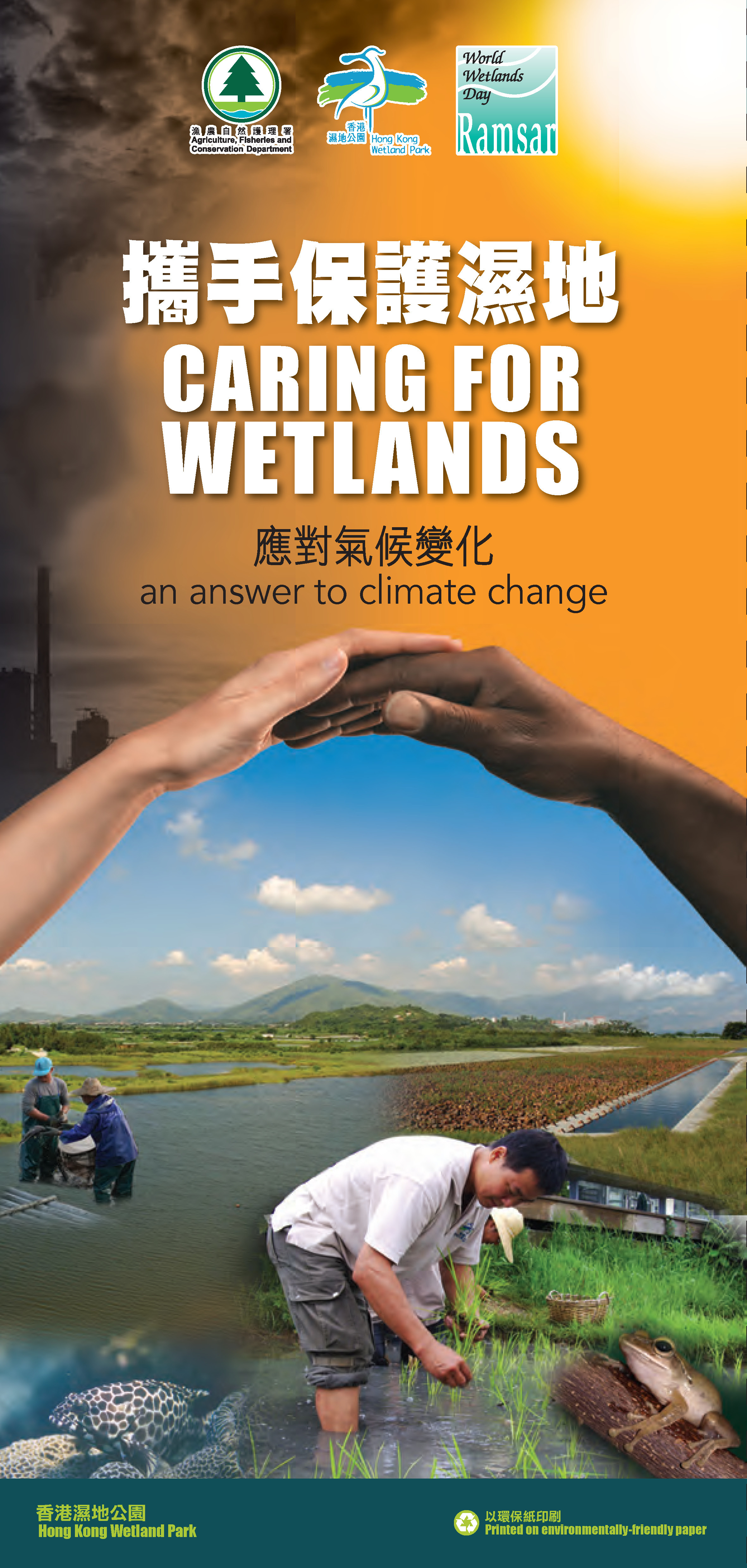
The Ramsar Secretariat has designated "Wetlands, Biodiversity and Climate Change" as the theme for the 2010 World Wetlands Day to coincide with the 2010 International Year of Biodiversity.
Climate change is one of the many drivers of biodiversity loss yet "Caring for Wetlands" can make a difference! The World Wetlands Day 2010pamphlet reveals the cause of climate change, and the importance of wetland ecosystem to maintain biodiversity.
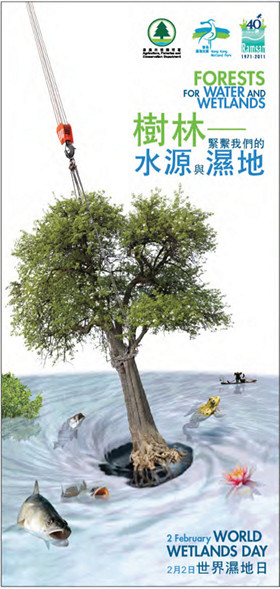
Year 2011 is the 40th anniversary of the Ramsar Convention. In response to the International Year of Forests declared by the United Nations General Assembly, the theme for the World Wetlands Day 2011 is "Wetlands and Forests". Using the slogan "Forests for water and wetlands", this year's theme focuses on wetlands and forests to raise public concern about the importance of conserving forests and wetlands.
The World Wetlands Day 2011 pamphlet aims to raise awareness of the vital role forests play in absorbing carbon emissions and maintaining freshwater availability.
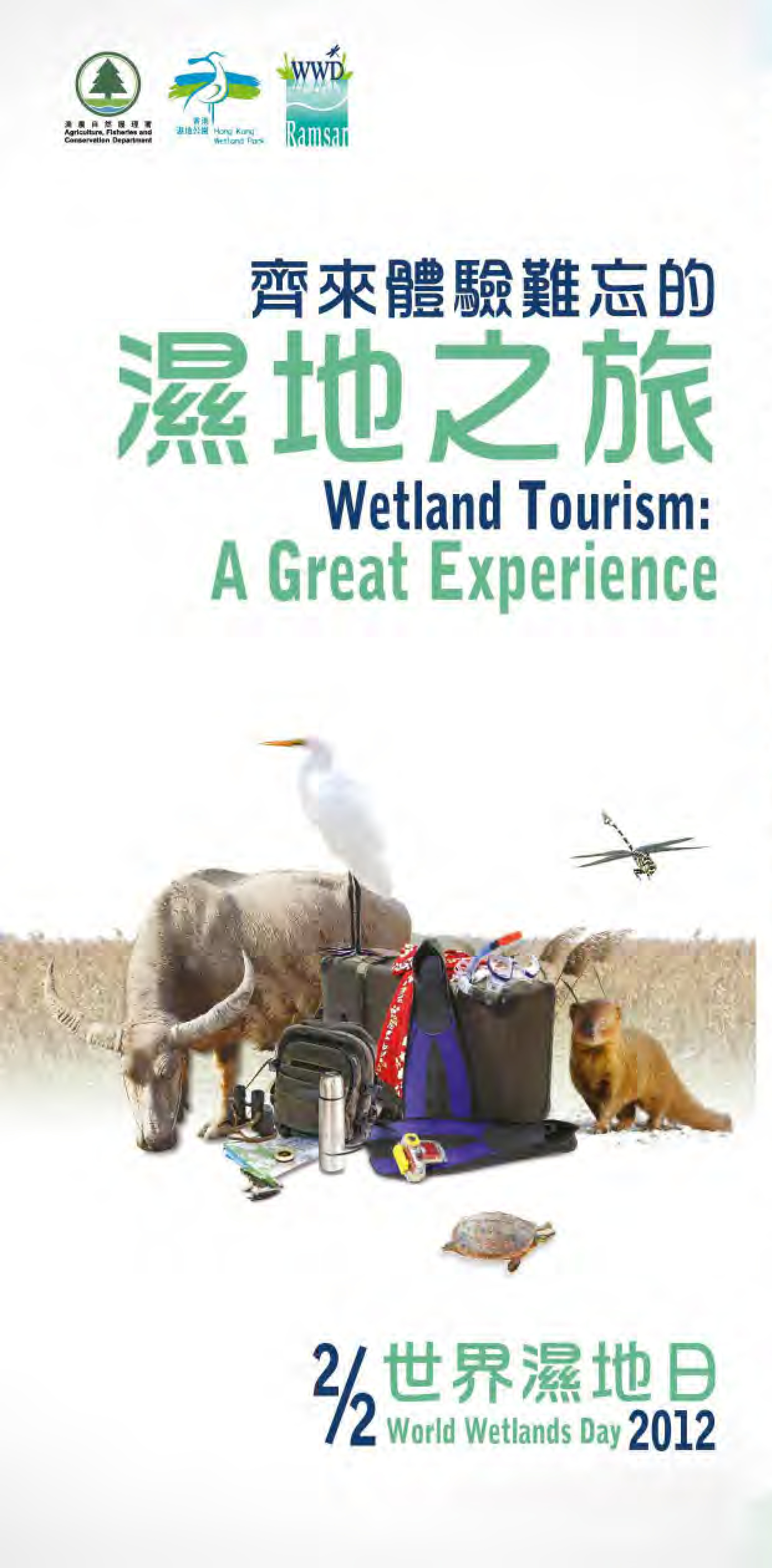
The World Wetlands Day (WWD) marks the adoption of the Ramsar Convention. On February 2 every year, all contracting parties of the Ramsar Convention over the world organise celebration activities to address this meaningful day and to arouse pubic awareness of wetland conservation.
The theme for WWD this year is "Wetlands and Tourism" and is linked to the theme for the next meeting of the Conference of the Parties, COP 11: Wetlands, Tourism and Recreation, which will take place in July 2012, in Bucharest, Romania.
Wetland tourism has benefits for both people and wildlife - benefits such as stronger economies, sustainable livelihoods, healthy people and thriving ecosystems. It is worth noting that tourism is one of the many services that wetlands deliver. Ensuring well-managed tourism practices in and around wetlands and educating tourists on the value of wetlands contributes to their health and the long-term benefits that wetlands provide to people, wildlife, economics and biodiversity.
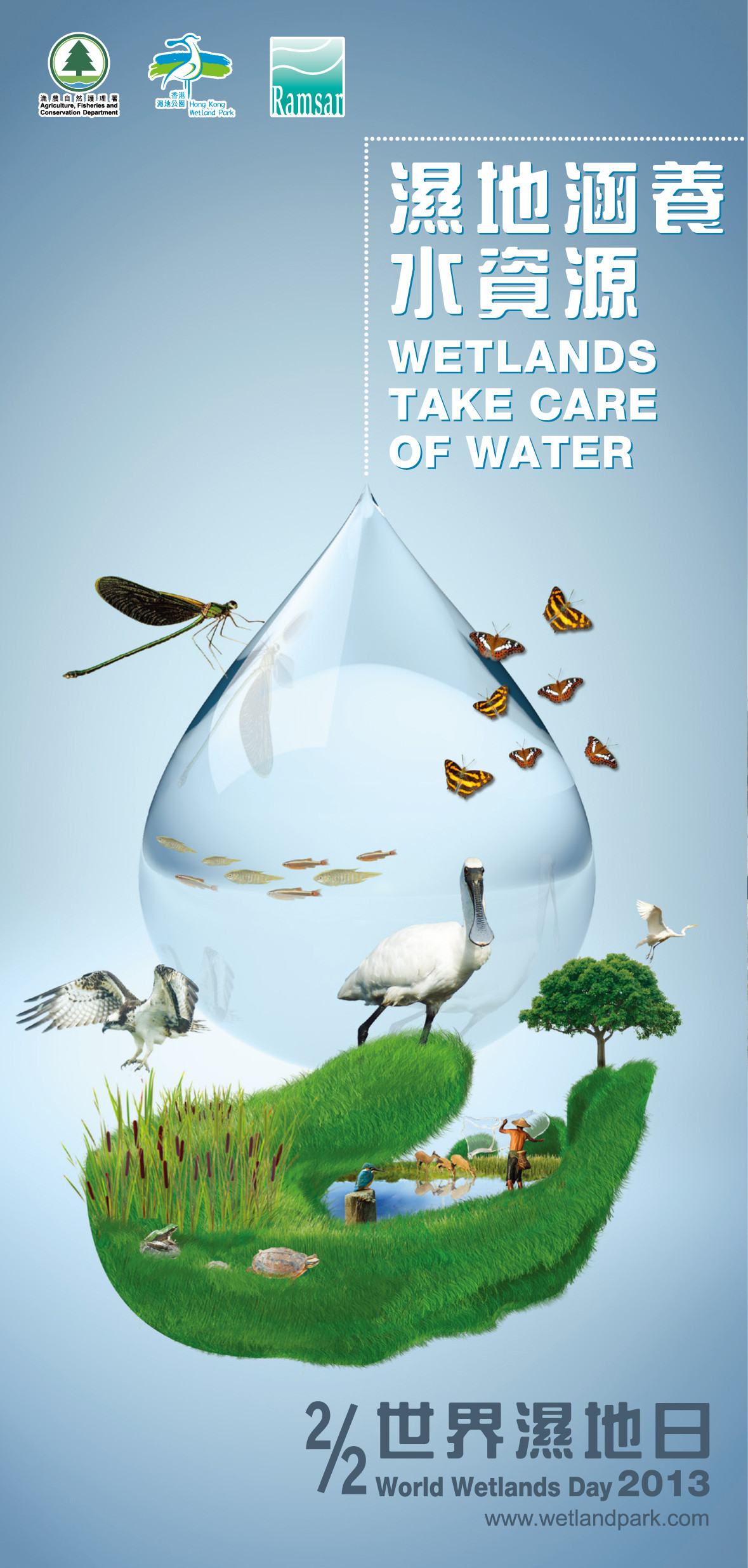
World Wetlands Day commemorates the adoption of the Convention on Wetlands in Ramsar, Iran, on February 2, 1971 - an international effort aimed at the conservation and wise use of wetlands around the world. On this day every year activities are held around the world to raise public awareness of wetlands' value and benefits, and to promote their conservation and prudent use.
This year's theme is wetlands and water management, chosen especially as 2013 is the United Nations International Year of Water Cooperation, and this year's slogan is "Wetlands Take Care of Water". The theme and slogan aim to raise awareness of the interdependence of wetlands and water, to highlight ways of ensuring the equitable sharing of water between different stakeholder groups and to emphasise that without wetlands there would be no water.
Wetlands play a major role in the availability and quality of water. They are integral components in the hydrological cycle and contain much of the water utilised by humans. The wise use of wetlands is essential for the delivery of sustainable water management and the benefit of all natural ecosystems, which in turn promotes sustainable economic and social development.
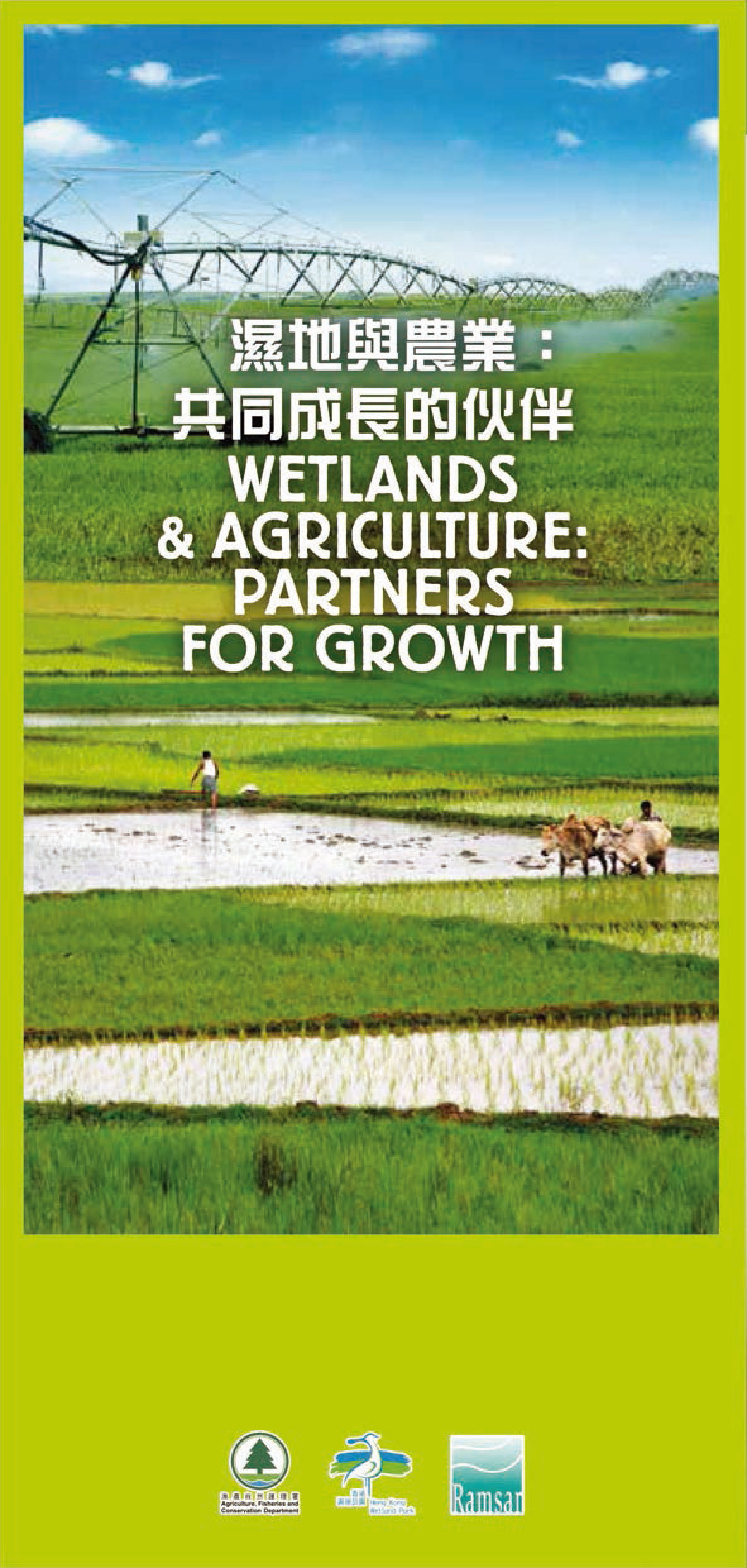
World Wetlands Day commemorates the adoption of the Convention on Wetlands in Ramsar, Iran, on February 2, 1971 - an international effort for the conservation and wise use of wetlands around the world. On this day every year, activities are organised worldwide to raise public awareness of wetlands' value and benefits and promote the conservation and wise use of wetlands.
In support of the UN International Year of Family Farming, Ramsar’s theme for World Wetlands Day 2014 is Wetlands and agriculture. It highlights the importance of wetlands in supporting agriculture, and the wise use of wetlands by finding the right balance of interdependencies between agriculture, water and wetlands.
Wetlands and agriculture are often interrelated in complex settings. Wetlands support agriculture by providing soils and water, hence providing food and agricultural products for humans, nurturing the development of cultures, and improving people's livelihoods. Alternatively, some wetlands are dependent on continued agricultural activities to maintain their ecological character, and some fields are unique habitats that provide feeding grounds for wildlife. Therefore, it is important to wisely manage the wetlands and associated agricultural development.
Adobe Acrobat Reader is needed to view this PDF file